To the main, I preferred the company of the lower ranks to that of their officers, although in truth I fit no better with the former than the latter. Like the ship, I was an awkward hybrid: too educated to feel comfortable with most working men, yet lacking the breeding to move freely among the so-called upper classes, despite wasting several years in a foolish and ultimately disastrous attempt to do so when I was young. I had more recently come to understand that my place in the world was with my family.
I rather liked Lakeman, the condottiere. He was of my kind, although he would likely not have admitted this, being considerably richer than I (though how he came by this conspicuous wealth was a secret he was not willing to disclose). His rank was even more ambivalent than my own, for he travelled as an officer in charge of a large body of men, in common with the other senior military commanders on board, but he was of no army save his own.
When Lakeman and his party joined our little charabanc, there was obviously some confusion among the ship’s officers concerning what, precisely, to do with him. He was, like me, an outsider. Having failed to gain a commission on the terms that he wished, he had, in the great tradition of the East India Company, raised his own regiment. As an officer and a gentleman, it seemed appropriate that he should dine with the other senior ranks at the Captain’s table, although Major Seton had privately made it known that he considered Lakeman to be at best a deluded fop and at worst a vulgar adventurer, a soldier of fortune whose national affiliations were far from clear (his mother was French). As the Major had also made his views about warrant officers more than plain, I think the old dog Salmond, whose rank was by warrant rather than commission, kept Lakeman close because he knew that this irritated Seton. He did much the same with me, a known radical and iconoclast, presenting me to his military counterparts as a fait accompli, ‘Mr. Vincent: author and scholar.’ Lakeman seemed oblivious, and was possessed of an enviable self-confidence, although I would not have put his age at much more than twenty-five. I had no doubt when I made his acquaintance that he would go far, in whatever army he ended up serving.
Lakeman came aboard with a beautiful chestnut mare called Élise, his mount since the late-40s, when, as he never tired of telling us, he was attached to the French staff in Algeria. During this time, he fought in several campaigns against the Arabs and the Kabyles, when he was presumably no older than the teenaged subalterns presently under Seton. In addition to this fine Arabian charger, Lakeman was the proud owner of his very own hobby horse, also acquired in Northern Africa. While slaughtering the locals, Lakeman had become deeply impressed with the superiority of the new French Minié rifle over the old Brown Bess smooth-bore. Upon his return to England, he therefore took it upon himself to enforce on the military authorities the advantages of this new weapon, which he knew, from personal experience at the sharp end, to outstrip the range of the British Army Land Pattern musket at least six fold.
He somehow managed to arrange an audience with Wellington. The Commander-in-Chief’s response was that in the British Army it was not the weapon that counted but the man behind it, while also arguing that the rapid twist of the rifling in the Minié would so increase recoil as to render it useless to a true marksman, because, he said, ‘Englishmen take aim, while Frenchmen fire anyhow.’ His Grace then delegated the matter to his adjutant, who conceded that the Minié might be of some use for taking long shots from ramparts, but he was certain that it had no other practical application in the field. (The implication being that a rifle best suited to sniping was a coward’s weapon, and entirely what one would expect from a French designer.) Lakeman was then unceremoniously passed to a colonel at the Board of Ordinance, who expressed his surprise at the Duke having displayed so much patience with his outlandish and foreign ideas, before bringing the interview to a close.
‘I made him uncomfortable,’ Lakeman told me, ‘for, unlike him, I knew which end of the rifle the ball came out of.’ Shortly afterwards, the war broke out at the Cape, and while the British Lion slowly shook the cobwebs from its ears and set about gathering fresh food for spear and powder, Lakeman saw his chance and promptly volunteered his services, under the condition that the men that served under him should be issued with Minié rifles. ‘There is no such thing as luck,’ he liked to say. ‘One must simply be prepared when an opportunity arises.’
Such was the need for manpower that some lunatic at the War Office gave him leave to enlist up to two hundred volunteers, the government offering rations and pay, although no staff, with Lakeman expected to provide uniforms, weapons, and barracks at his own expense. Should Lakeman manage a force of at least a hundred and fifty strong (which he had), the military authorities had guaranteed this contingent free passage to the Cape, to go and shoot, and be shot at by the Basuto tribesmen presently harrying the settlers. Thus was formed the notorious Shoreditch Rangers, so named because of the area in which recruitment was most enthusiastic, who now travelled with us to the Cape. It was rumoured that upon learning this intelligence Wellington was heard to remark that this was as good a way as any for Lakeman to commit suicide. I heard Seton and his staff privately referring to Lakeman’s people as the ‘Newgate Rangers,’ which did not seem to me to be far short of the case. To further paraphrase the Iron Duke to the point of cliché, I did not know what the enemy would make of them, but they scared the browns and whistlers out of me.
Dining in the presence of that company was therefore reminiscent of being placed at the worst table in the wedding party, with the mad aunts, the ex-lovers, and the ginger step-children. This was meat and drink to me, though, in more ways than one. As those sons of empire struck sparks off one another, I marked their stories well; those they told, and those they did not.
The Captain held court in his cabin below the poop deck, where we repaired that first night, the senior ranks and I (less Fairtlough, who was already feeling seasick, and Granger, who was on duty). This was after a surprisingly acceptable meal in the recently redecorated wardroom, although the damn place had still reeked of paint. The old bene cove was usually sailing with Admiral Lushington by the sixth bell of the dog’s watch, much to the obvious discomfiture and disapproval of Seton. The Major was a son of the manse, and his commitment to the pledge was obvious. As for myself, I loved a good comedy drunk, as did Lakeman, it would seem. He kept catching my eye and grinning as our Master and Commander meandered through one of his interminable anecdotes concerning his certain belief that mermaids were not only quite real (he had, he confessed, been intimate with females of the species on more than one occasion), but that they were another branch of the human family tree that had taken to the water millennia ago in accordance with Maupertuis’ theory of natural selection and Erasmus Darwin’s concept of common descent.
‘To see one of these creatures, in the flesh,’ said Salmond, after the table was cleared, the bingo served and the stinkers lit, ‘is to know that they are, in fact, quite human.’
They were, he said, of a like appearance to us, only perfectly adapted for the life aquatic, being physically streamlined and in possession not of a fish’s tail, as was the legend, but a great leathery paddle where once were legs and feet, in the manner of the other great ocean-going mammals.
Seton was attempting to engage in a polite and balanced manner with his host that one could not help but admire. The Major was tall man from the Granite City, although he did not look it on account of his soft, almost androgynous features. He was a little younger than me, no more than forty, and he spoke like an academic (with the added gravitas that a refined Scots accent always seems to convey). He had thus stoically fastened onto Darwin’s name, and his thesis that all warm-blooded animals had arisen from one living filament, which, he said, the great First Cause endued with animality, with the power of acquiring new parts attended with new propensities, directed by irritations, sensations, volitions, and associations.
‘The First Cause,’ he said, ‘of course refers to Aquinas’ proofs of the Lord Our Father as the primary generator of all things material, regardless of how much they may alter through either random or selective breeding across the centuries.’
‘And whatsoever passeth through the paths of the seas,’ added Captain Wright, the highest ranking army officer on board after Seton. They were of a similar age, but there any resemblance ceased, even though Wright, too, was a Scot. Behind whiskers of great ferocity, upon features as sharp as a sabre, Wright had the look of a soldier about him. He was confident, and comfortable with his own authority in a way that Seton was not. Wright, I had heard, had already been in the thick of it. Of all the army officers on board, only Wright and Lakeman had ever fired a shot in anger.
‘The Eighth Psalm,’ muttered Seton in absentminded reply.
‘Exactly so, sir,’ said Sheldon-Bond, nodding with exaggerated interest. I noticed Ensign Rolt kept his own counsel, but he probably knew that no one gave a bobstick for his opinions one way or another. Bond was more ambitious, and had weighed Seton up as a bit of an anthem cackler, which was a fair assessment, at least in provisional terms. I had arrived at a similar conclusion having watched him quaff nothing but rainwater the entire dinner.
Salmond motioned to his man to charge his glass and fixed Seton in a pernicious gaze, his ancient face horribly underlit by a squat glimstick that threatened to ignite his beard like a roman candle. ‘Balderdash,’ he said, in that low tone of his, like the echo within some great iron bell. Seton looked embarrassed, and for a moment no one spoke.
Salmond had quite a pronounced scar on his forehead, and although I later heard Bond and Rolt nervously joshing in private that he had probably fallen down some steps while in his cups, I wondered if this wound, however it may have been come by (more likely by ball and shot given his past), was the crack in his head by which a little bit of the dark world had crept in and found easy purchase in his disappointed soul. I had seen this sort of thing happen before, and I had lately began to wonder, as I slid past the middle age myself, if once all the hopes and dreams of youth were certain not to come true, and the demons and eidola of one’s heart had reached a particular density, with every missed opportunity, failed love, betrayal and defeat logged, stored and reviewed, that most of us simply went mad.
It was a quiet night, windless and calm but very, very dark. The cloud was low and thick, and what moon there was cast no light whatsoever. There was only the constant vibration of the ship’s great engines, that distant hammering, coupled with the sounds of the twin paddles slapping the sea. But now another sound interrupted Salmond’s increasingly deranged monologues, a booming, doom laden howl, which shuddered through us like the sounding of the seven trumpets.
‘What in God’s name was that?’ said Wright.
The echoing lamentation sounded again, long and mournful in the night. I felt it travel the length of my spine and then ruffle my hair like a troublesome spirit. I beckoned for more drink and took a cigar, for I could feel a familiar sense of building panic, the cold, hopeless dread that crawls over me when I look too closely at my station and my circumstances, like a man on a precipice who suddenly and foolishly looks down. And I had looked down. I was suddenly aware of the icy vastness of the black Atlantic upon which we presently balanced, bobbing atop the waves with no more presence than the floats my father once fashioned with cork to fish for pike. My fancy then turned to the huge creatures I knew to glide beneath, unseen yet ever present, as the siren song outside clearly evidenced. The fauna of a thousand childhood nightmares began to swim upwards towards me, and I imagined, too, the agony of drowning, of taking that final breath of freezing water until your lungs burst and your eyes popped. And contrary to polite and popular opinion, I was confident that you would feel every second of it. My chest tightened and my hands trembled, neither symptom connected, I knew, to the cheap cheroot between my teeth. I hoped that my companions had not noticed, and continued to draw upon the cigar.
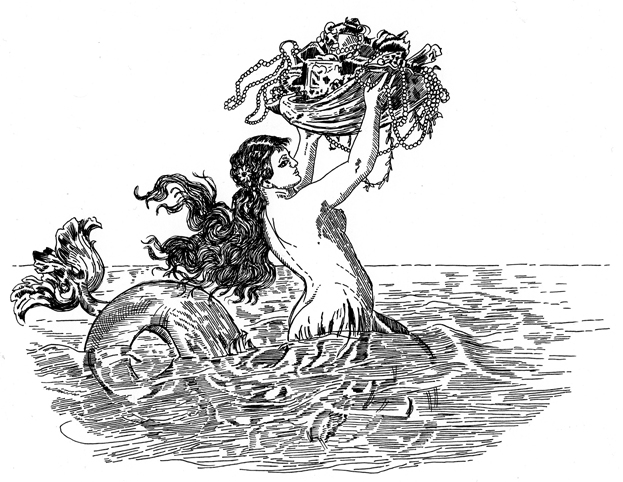 ‘Perhaps whale song,’ Salmond was saying, ‘perhaps something else.’
‘Perhaps whale song,’ Salmond was saying, ‘perhaps something else.’
‘What exactly do you mean by “something else”?’ I asked him.
Salmond just stared, past me and into the heart, I fancied, of some fantastic and terrible memory which my own imagination was happy to embellish. ‘I have heard the mermaids singing,’ he said, ‘when there are sharks close by.’
‘And do the sharks join in?’ said Lakeman, his fine features twisted by a facetious mirth, ill-disguised yet, apparently, unmarked by the Captain.
‘Sharks,’ said Salmond, ‘snort like swine.’
I had no desire to think on that, so while the Captain continued his soliloquy about sea monsters, both real and illusory, I attempted to follow some common advice from my wife and to ‘think of something nice.’ Yet despite my finest efforts, I was swiftly swamped by a wave of my own anxieties. I had heard tales of ships stove in by sharks and whales, like the Essex out of Nantucket, and I shuddered anew at the thought of entering the water myself.
I recalled then the river sharks of my childhood, the ugly pike with the thin snouts, vicious teeth and mirthless smiles that my father loved to fish, first for sport, later for food, though the damn things tasted muddy and were as full of bones as an eel. For an English coarse fish, Pike were powerful fierce, and would bite clean through anything but a wire line. I even saw one take a moorhen once. She was in the reeds when the big fish grabbed her and pulled her down, leaving nought but a few feathers and a cold ripple slobbering about the bank. Where I had grown up, folk said that a hungry pike would go as far as to grab a horse’s snout when it dipped its head to drink from the river, but I never witnessed that myself.
My father told tall tales of a giant pike that the labourers that worked the fields by the river called ‘Razorhead,’ that, local legend had it, was over a century old and a good two yards in length, if not more. My father dreamed of catching this creature, and carved elegant lures and tied beautiful flies to entice the beast. I remembered with a bittersweet pleasure those dawn trips we took to the river that snaked through the fields of lazy cows and bad tempered horses beyond our cottage to hunt the great fish, before everything went to hell.
We never caught the pike, but I was swimming once (for I swam quite happily as a boy), when I saw it, gliding beneath me on the sandy bottom. The thing was huge, easily as long as my father was tall, maybe six, even seven feet long. I froze, treading water like a ghost, my heart hammering and my eyes locked on the predator below. To my profound relief the brute continued on its solitary course, seemingly unconcerned by my presence in its domain. I could see it was approaching a bend in the river, and as soon as it was out of sight I raced for the bank.
I had my arms on dry land when the bastard grabbed me and dragged me under. There was no pain, but I could feel that the animal had a good hold on my right foot so I kicked as hard as I could with my left, my hands scrabbling uselessly for purchase and finding only liquid. I screamed and was rewarded with a burning lung full of water, and I knew then that soon I would be dead. I thrashed about wildly in the monster’s shredding grip, until finally my heel connected with something solid and it let me go. I had the presence of mind to do what my father had taught me when I was learning to swim, and I followed the path of the bubbles upwards to fresh air and safety. When I dragged myself out of the water I realised that two of my toes were missing. Some farm hands found me later, shivering from shock and grasping my ruined foot in horror. They gathered me up gently and took me home, and after that day I swam no more.
I returned my attention to the present company. The mysterious song outside was receding, and when the orderly replaced the candle the atmosphere in the cabin became lighter. The Captain had concluded his discourse upon the subject of mermaids, and Lakeman’s features were contorting into fantastic expressions as he struggled manfully to suppress the gales of laughter screaming for release. He took a reckless drag on his cigar and commenced to snort and cough convulsively. I bashed his back and he spluttered as if drowning.
‘By God, sir!’ he finally exploded, addressing the Captain, ‘that was a damn fine story.’
The party relaxed, with the exception of Salmond, who glowered at Lakeman with eyes like a brace of blown lamps. ‘There’s them that laughs,’ said he, ‘and them that know better.’ He nodded sagely and indicated to his man that his glass was once more empty. Fortified by a generous balloon of brandy he regarded us all with a baleful eye. It was interesting to me that the soldiers were wary of passing comment. The younger men were waiting for Seton to speak, I was sure, but he kept his opinions to himself. I had noticed that keeping even a normal conversation in train with him was quite difficult. His protracted silences tended to cause one to babble. I said nothing, because, at that moment, I believed the Captain’s chimerical stories of mermaids, or at least I wanted to believe, but I was equally reticent about declaring for his side, especially so soon in the collective acquaintance of the group there assembled. I doubted he cared what I thought anyway. He had the look of a man familiar with ridicule, and it was difficult not to concede that this particular yarn was ripe for parody if presented as anything other than a colourful fantasy. I wanted to believe him, though, because there was no magic left in the world, and what use is a world like that?
Wright was the first to crack. ‘I think,’ said he, leaning conspiratorially towards me, ‘that perhaps you might get a story out of this, Mr. Vincent.’ I took this in good part, and was beginning to feel quite flattered until he followed this with, ‘Even better, come to think on it, you could call upon your friend Mr. Dickens to write of this matter in Household Words.’
‘Yes,’ I said flatly.
‘’Sdeath, sir,’ said Lakeman. ‘Do you mean to say that you know Dickens personally?’
I nodded glumly, fabulous nautical beings forgotten in an instant. Dickens. They always wanted to know about bloody Dickens. You would think sometimes that there was not another writer active in England at the time. Even Seton was looking on hopefully, and from the expression on his face that old fool Salmond thought he was already halfway to a cover story illustrated by Knight Browne or Cruikshank. If he had read Dickens’ recent comments on the new American spirit mediums he’d not have been so keen. Dickens would have torn him apart for breakfast, and then tossed the bones to Thackeray, Forster and Hengist Horne to gnaw upon like dogs beneath his table.[2]
‘Perhaps I can get you a headline in the Illustrated London News,’ I offered, although he looked less than impressed at this, and returned a bulldog stare, chewing his cigar and expelling smoke as if he were his own ship’s funnel. The illustrated press was a much better home for tales of madmen, monsters and mermaids though. Those things were de rigueur in New Grub Street.
But they had me outflanked. Like the rest of the world and his brother, they all wanted to know about Dickens. Well, I knew all about Mr. Dickens. We went a very long way back indeed. I knew him so long ago in fact that he had by then almost managed to convince himself that the young man he had once been was not him at all.
Now me, I knew exactly who I was and where I came from, as assuredly as I knew exactly where I was going. I had a gift for dramatic narrative, it was true, but I knew my limitations. I was no great novelist (although my work had sometimes sold well), and I had long since given up trying to be so. Dickens, of course, was great, if a trifle melodramatic and sanctimonious, and Thackeray, the insufferable son of a whore, was probably a genius, although I would be laughing in my grave before I ever told him so to his face. I was a good all-rounder, but only in the second eleven. I was not a great philosopher, a brilliant social critic, or a sophisticated literary stylist. I was, and had always been, a simple storyteller, and I wrote to live rather than the other way around. I was a penny-a-liner—
Click here to read Chapter IV

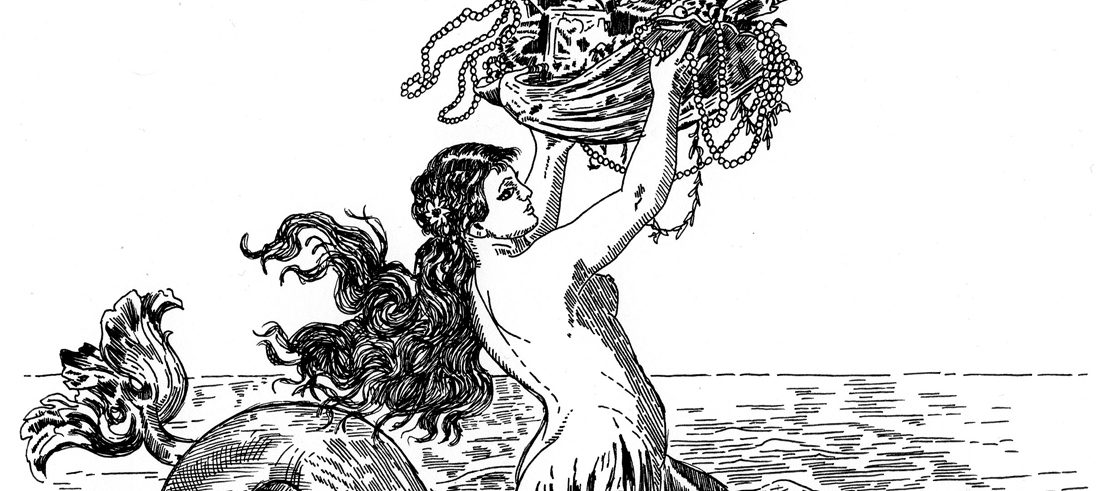
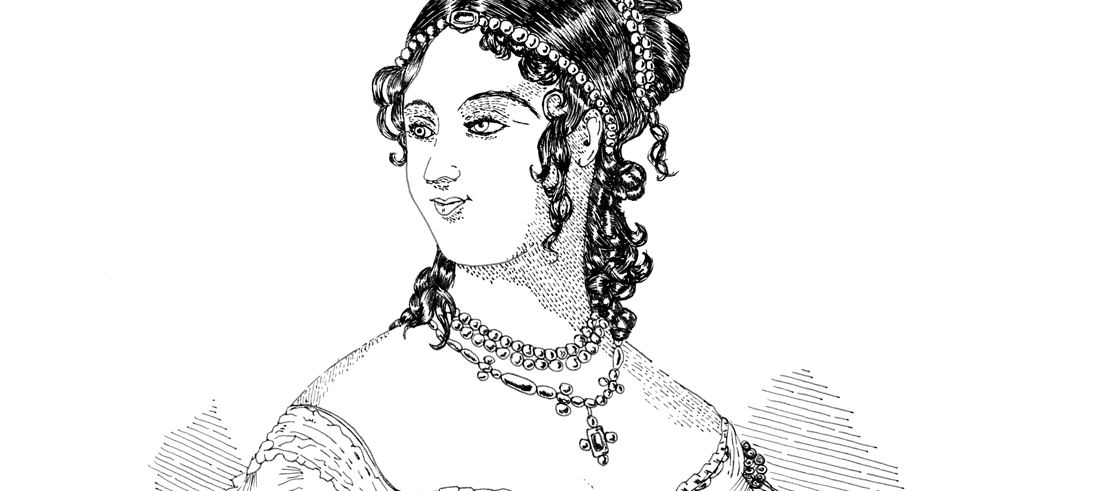
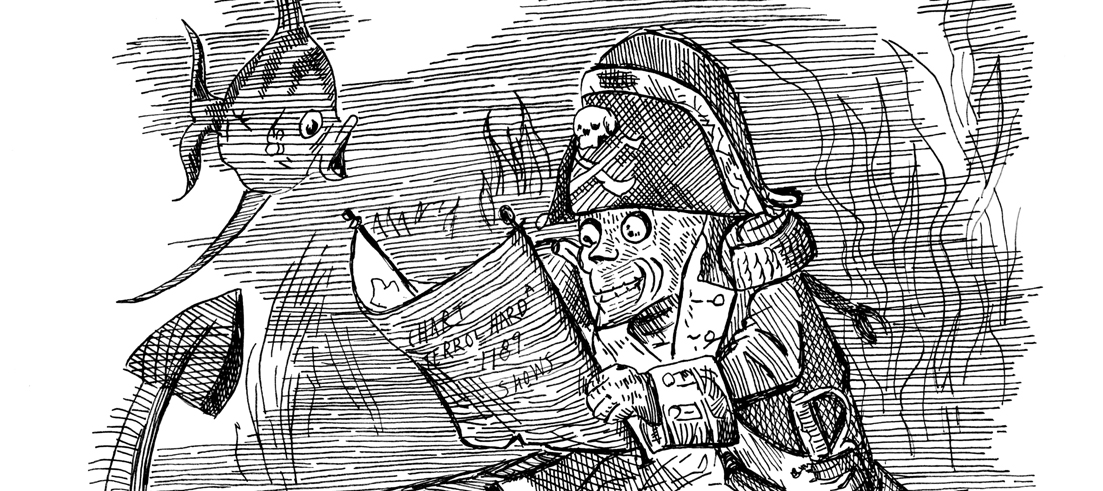
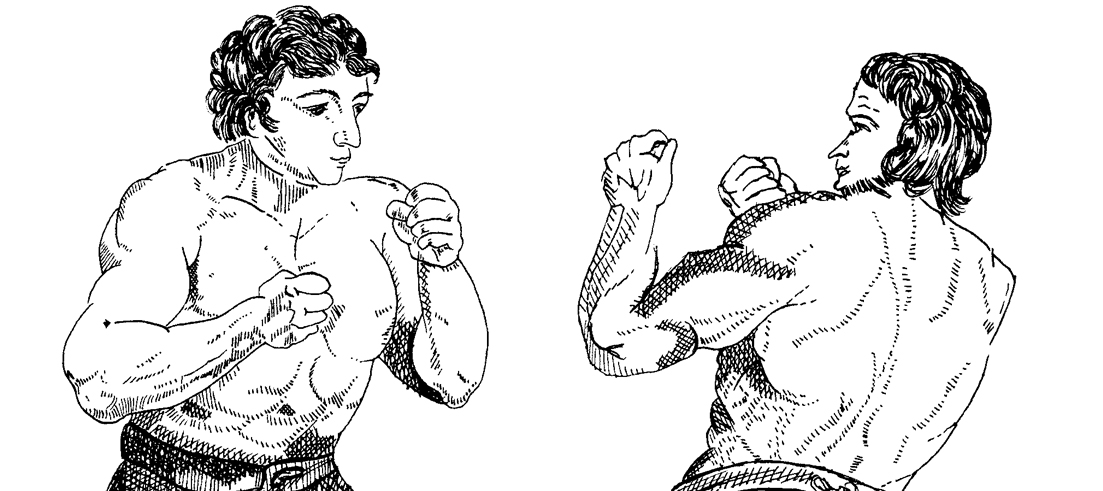
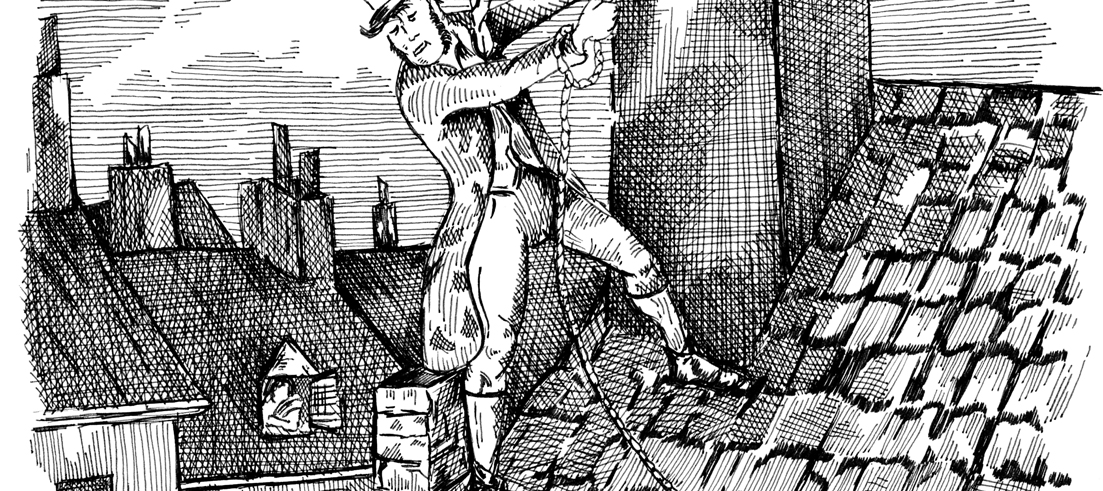
No Comments